The SANGO-Kenya farmers continue to impress with their drive and commitment to find ways to advocate for food and nutrition security!
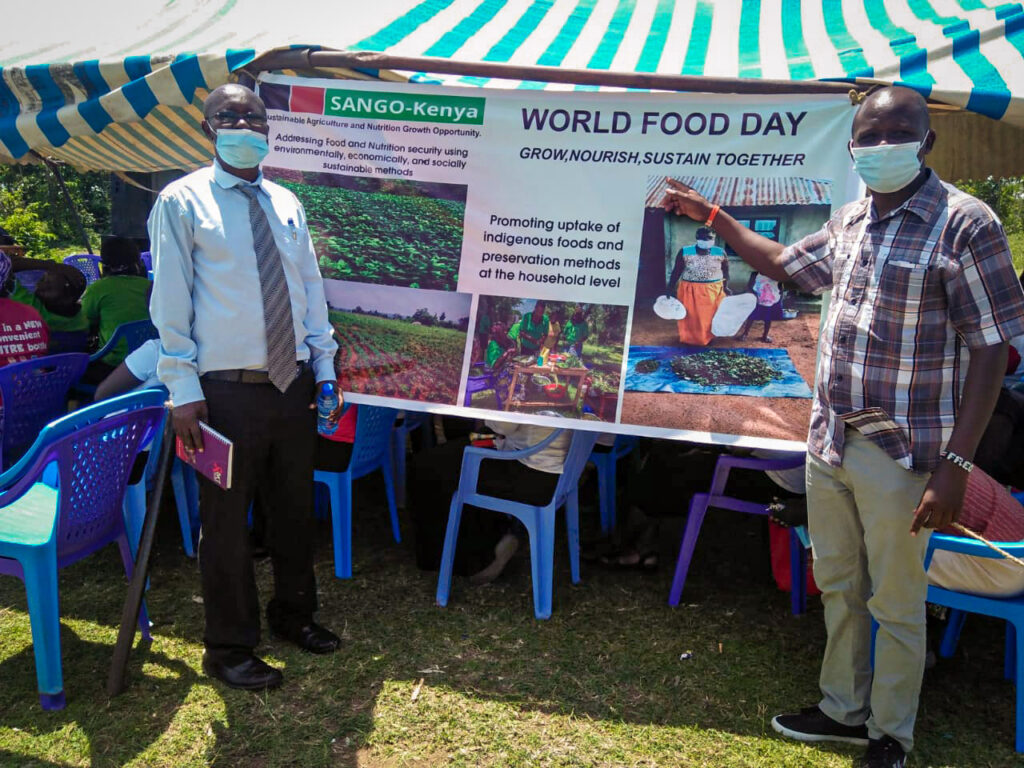
On World Food Day, along with our Nutrition Advisor Frederick Obondo, the farmers organized an event for their friends and neighbors in the market square so they could share what they had learned and the benefits they had received from their participation in SANGO-Kenya.
Frederick welcoming attendees and explaining SANGO-Kenya and our goals
World Food Day is an annual program of the FAO (Food and Agriculture Organization of the United Nations). This year’s theme, “Grow, Nourish, Sustain. Together”, supports SANGO-Kenya’s focus on Sustainable Agriculture, Nutrition, and Growth Opportunities.
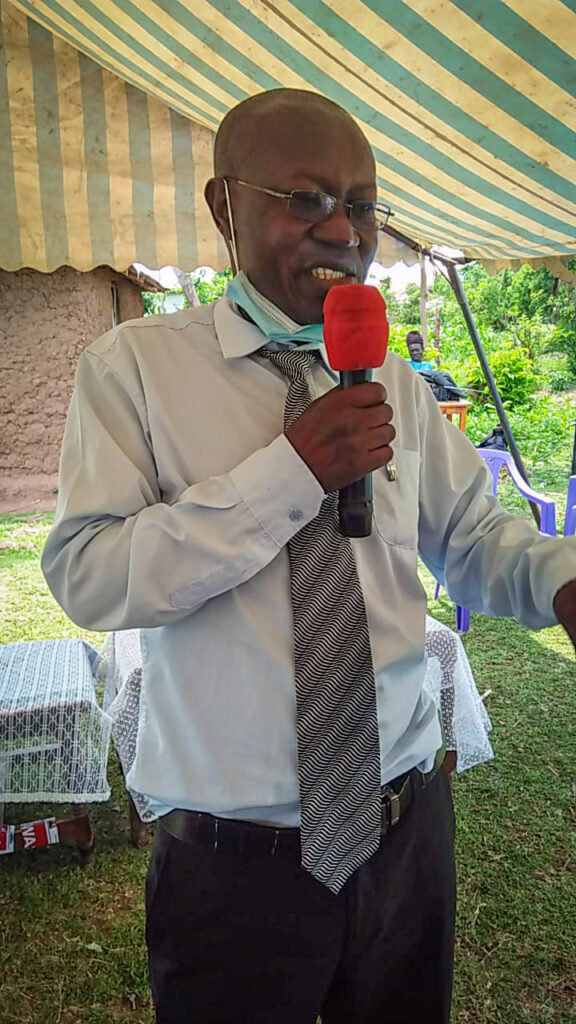
The event was a tremendous success by all measures. About 65 community members as well as several community leaders including the Medical Officer and Community Strategic Focal Person from the Ministry of Health, and the Assistant Chief attended. The audience listened closely as the community leaders, Frederick, and the farmers talked about SANGO-Kenya, how it had evolved, and the benefits we have brought to the farmers, their families, and the community at large.
Frederick and the farmers gave a glimpse into the training and the nutrition, food security, and economic benefits the farmers had gained from participation. Frederick talked about the nutritional benefits of the green leafy vegetables they grew. He emphasized how important it is to first feed their families and only then sell the surplus at the market. Women, who comprise the majority of the farmers, are often pressured to sell crops to make money, even when members of their families may not have enough to eat. Because of SANGO-Kenya, the farmers were able to do both: In our post-pilot survey, the farmers reported that, because of the pilot, they had harvested more vegetables than in the past and were able to both feed their families and have enough to sell at market, making money they could use to buy other household items. They also sold the vegetables from the shared demonstration plot and bought masks and hand sanitizer to distribute to less fortunate members of the community. One farmer reported that she had so many vegetables that she went to Kisumu, about an hour away, so she could sell her vegetables at a higher price.
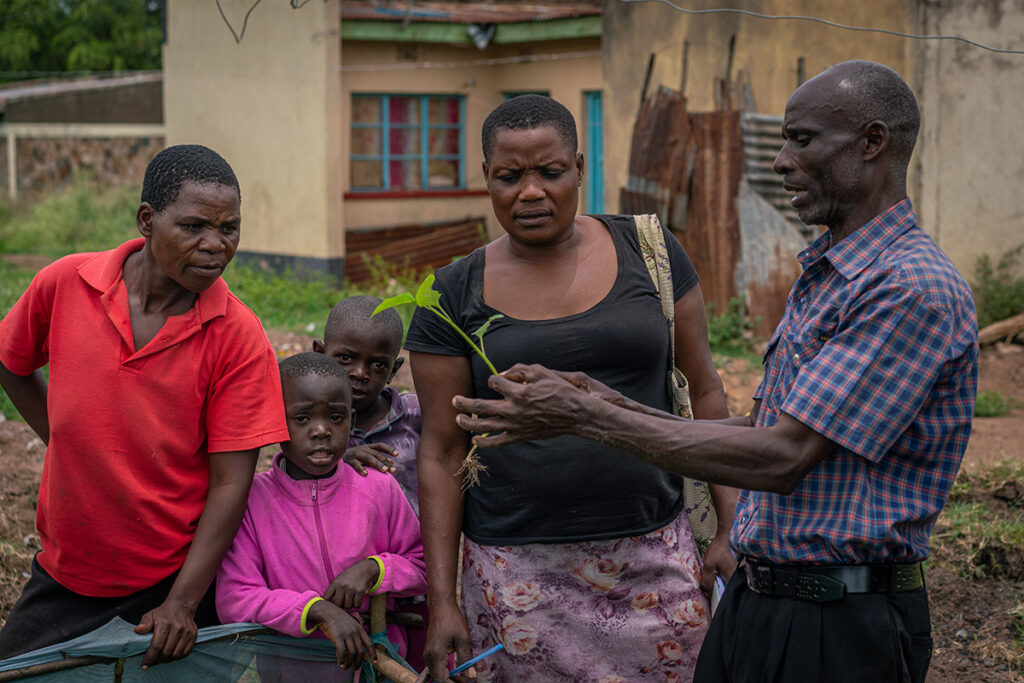
from our agriculture expert Dominick.
The farmers also discussed the sustainable farming methods they had learned, using natural pesticides and fertilizer (manure) instead of chemicals. They explained how they had learned to preserve the vegetables by drying them, and how to prepare the dried vegetables so that flavor and nutrition values are maintained.
Preservation is important so they can continue eating the vegetables post-harvest. Drying allows them to preserve the vegetables without requiring any additional costs. They encouraged the elder women to pass down traditional preservation techniques, which have been lost to younger generations.
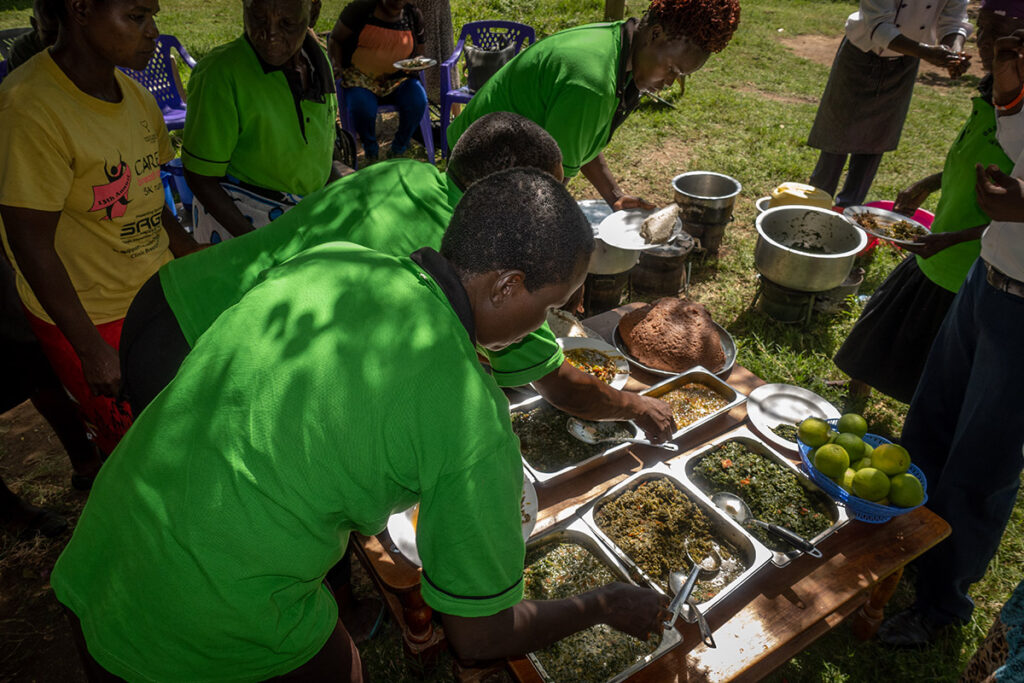
The community members listened closely and asked a lot of questions. Many asked how they could participate in SANGO-Kenya in the future. Most commented that they would like to grow green leafy African indigenous vegetables on their own farms because the vegetables are expensive, hard to find in markets, and they frequently have to travel to a larger market to buy them. The Assistant Chief emphasized that it is important that every homestead has a kitchen garden that includes the African indigenous vegetables that are part of the SANGO-Kenya program.
The farmers are truly inspiring. They are responsible for virtually every aspect of running the household – taking care of the children, raising the crops and animals, cooking, cleaning, and contributing financially. When I looked at the photographs and videos, it was so wonderful to see everyone, see them wearing their green women’s group shirts, and seeing how proud they are of what they have accomplished.
We are now preparing for next year, planning how to expand so more farmers and communities can participate. The graduates of the pilot will be key to our growth. This event demonstrated how committed they are, how much they have learned, and how enthusiastic they are to train others.
Increasing nutrition and food security has never been more critical. According to a recent UN report, the number of hungry people is increasing after decades of decline. There are now almost 60 million more undernourished people worldwide than in 2014, with Africa’s population the fastest growing. Climate change has been a major contributor, and COVID-19 is expected to increase the number even more.
Still we are hopeful. This year marked a major milestone in the recognition of the importance of food security. The Nobel Peace Prize was awarded to the World Food Programme for its programs that help alleviate hunger and food insecurity around the world. We are encouraged by that recognition, as it acknowledges for the first time the importance food security holds for stability and peace.
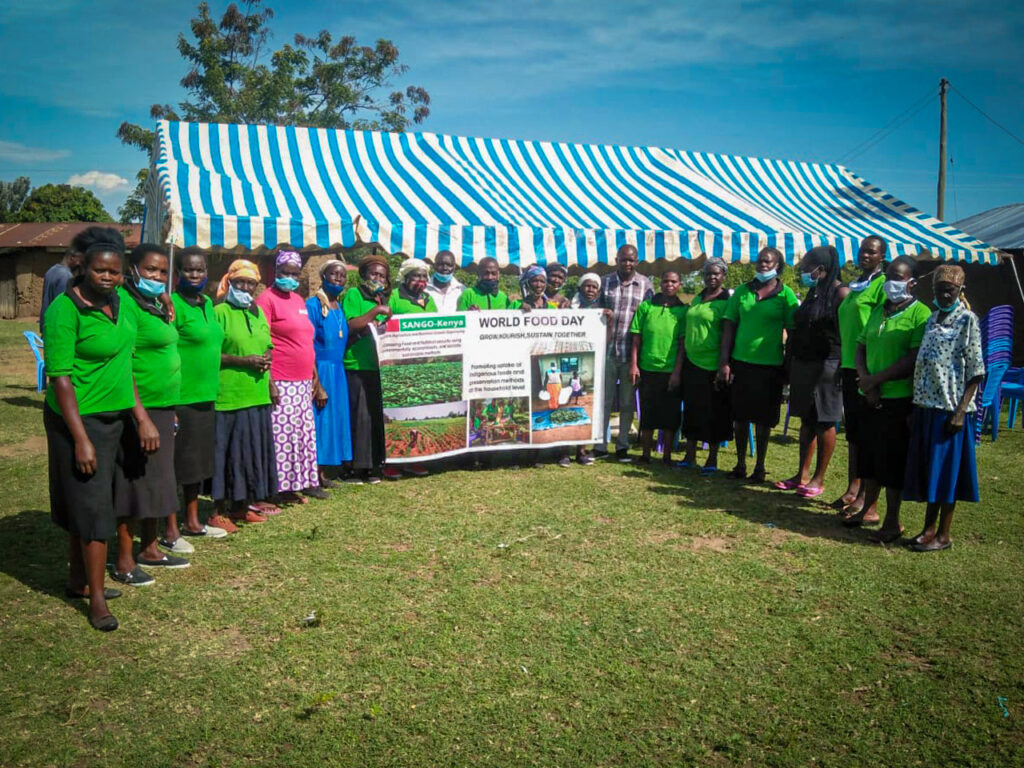
And we are encouraged by the SANGO-Kenya team!
None of our programs would be possible without your support. Your tax-deductible donation today will help us expand our programs and improve nutrition and food security for more communities. Thank you!
Please like us on Facebook:
SANGO-Kenya
And follow us on Instagram:
SANGOKENYA
Write me! I love hearing from you!
kit@SANGO-Kenya.org

Kit Goldfarb, this progress is amazing. In a year when the pilot was threatened by the prospect of devastating locusts, a potential pandemic, and the usual weather challenges, it seems to have succeeded beyond expectations AND motivated so many people to participate next season. Seeds for the future!! Congratulations to all, especially the determined and hardworking farmers!!
Thank you so much, Jill! I so appreciate all of your support and encouragement — you have been with us from the very beginning! And yes…it has been a challenging year, but the farmers are so impressive. And keep the rest of us inspired.